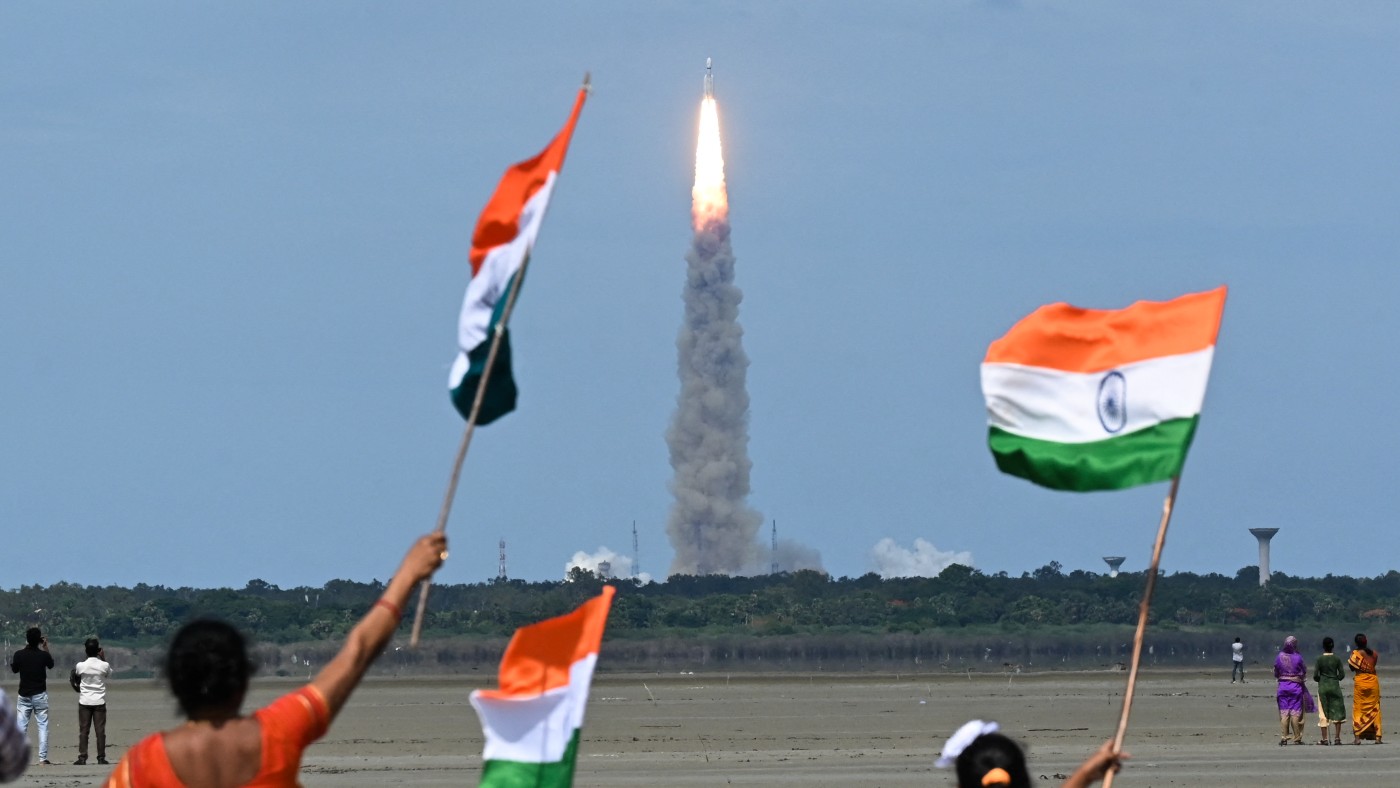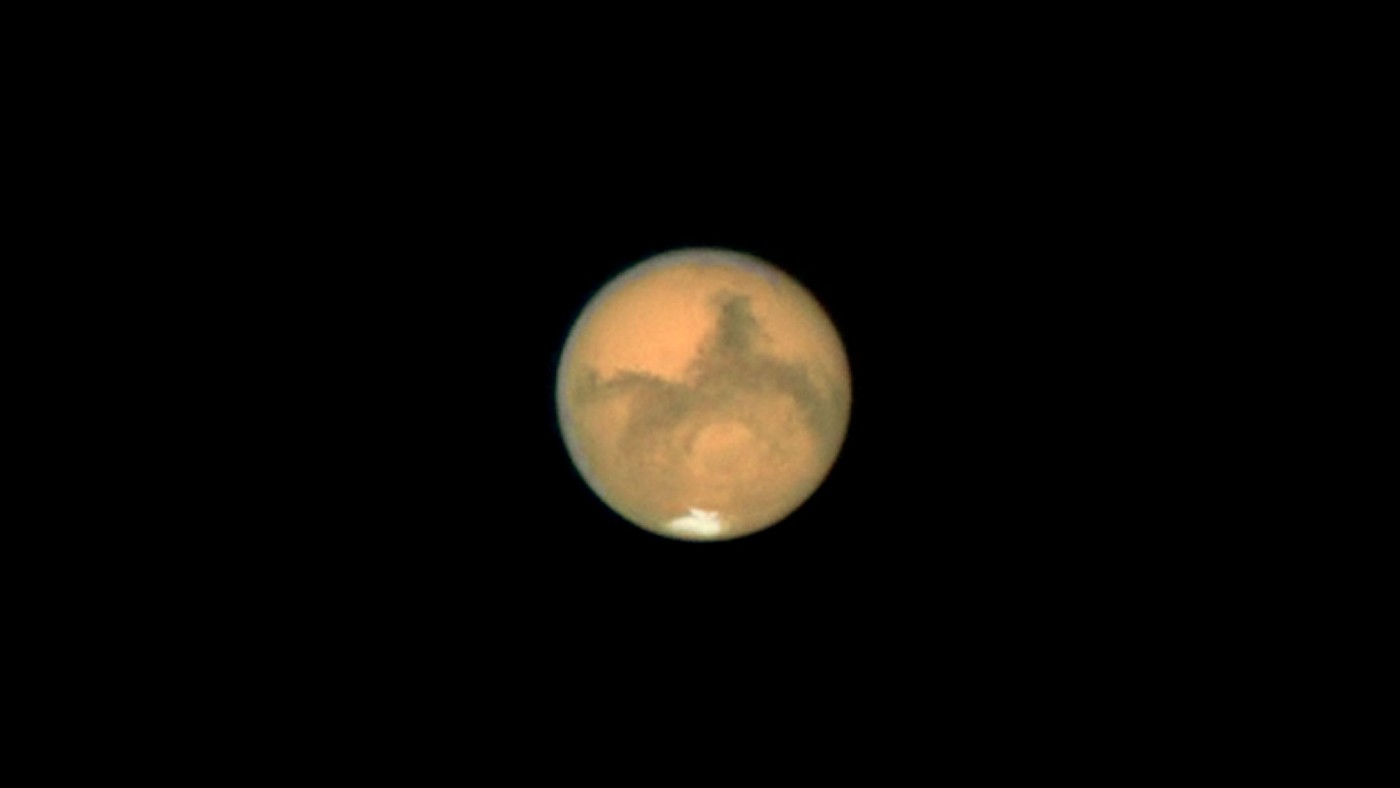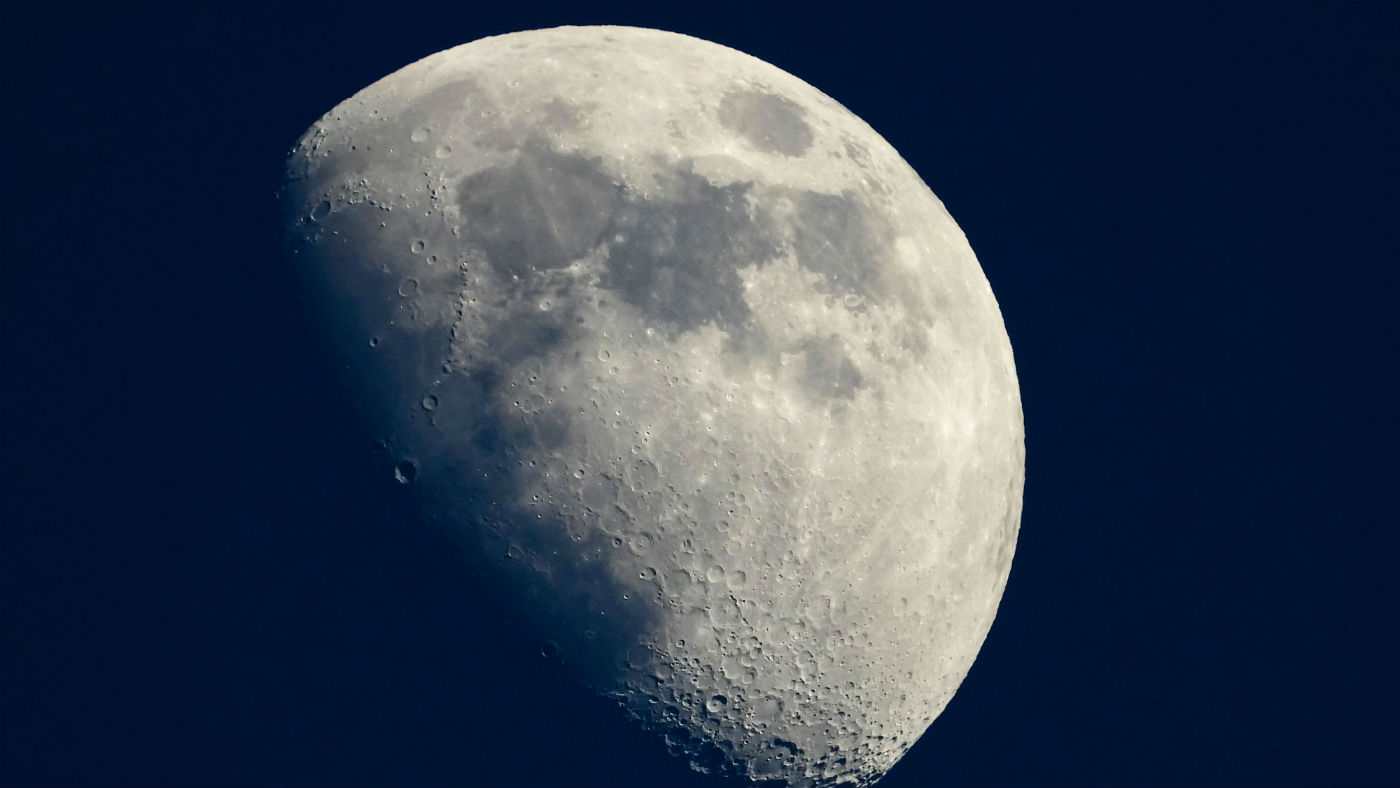Double moon 27 August: hoax returns to fool Facebook yet again
A rumour is doing the rounds that there will be a 'spectacular double moon' in the sky in late August but astronomers say it's all nonsense

A free daily email with the biggest news stories of the day – and the best features from TheWeek.com
You are now subscribed
Your newsletter sign-up was successful
People around the world will marvel at a spectacular "once in a lifetime experience" of a "double moon" in the night sky on 27 August, according to a message doing the rounds on Facebook.
The post, which has been debunked by astronomers everywhere, claims that Mars will be so bright and large that it will look as though there are two moons next to one another.
The astronomy site EarthSky.org, affiliated with the award-winning science radio show of the same name, said that the rumour has become so popular that the site's feature discrediting the double moon theory has been its most-read feature this week.
The Week
Escape your echo chamber. Get the facts behind the news, plus analysis from multiple perspectives.

Sign up for The Week's Free Newsletters
From our morning news briefing to a weekly Good News Newsletter, get the best of The Week delivered directly to your inbox.
From our morning news briefing to a weekly Good News Newsletter, get the best of The Week delivered directly to your inbox.
The hoax often includes a Photoshopped picture of what looks like two bright moons hovering over a domed building in the early evening.
But "the email and photo are perpetuating a hoax that rears its crazy head every summer," EarthSky explains. "The hoax has circulated every summer since 2003. Twelve years running! That's a long time for a hoax to run, in our world of information."
The site explains that viewed from the Earth, it is impossible for Mars ever to appear as large as a full moon. Editor-in-chief Deborah Byrd adds "Mars isn't even visible in July, 2015, and, although it might come into view in the east before dawn by August 27, 2015, it won't be anywhere near the July or August full moon.
"What's more, Mars is nowhere near its brightest or closest in July or August of 2015, or at any time in 2015. In 2015 so far, Mars has been relatively inconspicuous in our sky. It's on the far side of the sun from Earth. That'll continue to be the case throughout the rest of this year."
A free daily email with the biggest news stories of the day – and the best features from TheWeek.com
So how did the rumour begin?
In 2003, the Earth and Mars came as close as they have ever been to one another in 60,000 years, the BBC reports. At 56 million kilometres (35 million miles) apart, the two planets were "about the closest they can get." As the celestial event approached, some fantastical claims about how big Mars would appear began to circulate. Although the planet appeared very large and bright, it still looked significantly smaller than the moon.
-
 The environmental cost of GLP-1s
The environmental cost of GLP-1sThe explainer Producing the drugs is a dirty process
-
 Greenland’s capital becomes ground zero for the country’s diplomatic straits
Greenland’s capital becomes ground zero for the country’s diplomatic straitsIN THE SPOTLIGHT A flurry of new consular activity in Nuuk shows how important Greenland has become to Europeans’ anxiety about American imperialism
-
 ‘This is something that happens all too often’
‘This is something that happens all too often’Instant Opinion Opinion, comment and editorials of the day
-
 India hoping to be fourth country to reach Moon after Chandrayaan-3 launch
India hoping to be fourth country to reach Moon after Chandrayaan-3 launchSpeed Read Rocket aiming to set its lander Vikram down near Moon’s little-explored south pole
-
 Nasa finds molecules on Mars
Nasa finds molecules on Marsfeature And other stories from the stranger side of life
-
 Why space experts want a new time zone for the Moon
Why space experts want a new time zone for the MoonSpeed Read An international effort has been launched to create a commonly agreed lunar time
-
 Andrew Tate and the radicalisation of teenage boys
Andrew Tate and the radicalisation of teenage boysTalking Point Teachers say male students are being sucked into former kickboxer’s ultra- macho world where they are exposed to his disturbing views
-
 How TikTok conquered the world
How TikTok conquered the worldfeature The Chinese-owned video app is expected to have 1.8 billion users by the end of the year
-
 The Week Unwrapped: Quitting China, social age checks and dental deserts
The Week Unwrapped: Quitting China, social age checks and dental desertspodcast Why has AirBnB given up on China? Are social networks finally taking age limits seriously? And why is it so hard to find a dentist?
-
 Home Office worker accused of spiking mistress’s drink with abortion drug
Home Office worker accused of spiking mistress’s drink with abortion drugSpeed Read Darren Burke had failed to convince his girlfriend to terminate pregnancy
-
 In hock to Moscow: exploring Germany’s woeful energy policy
In hock to Moscow: exploring Germany’s woeful energy policySpeed Read Don’t expect Berlin to wean itself off Russian gas any time soon